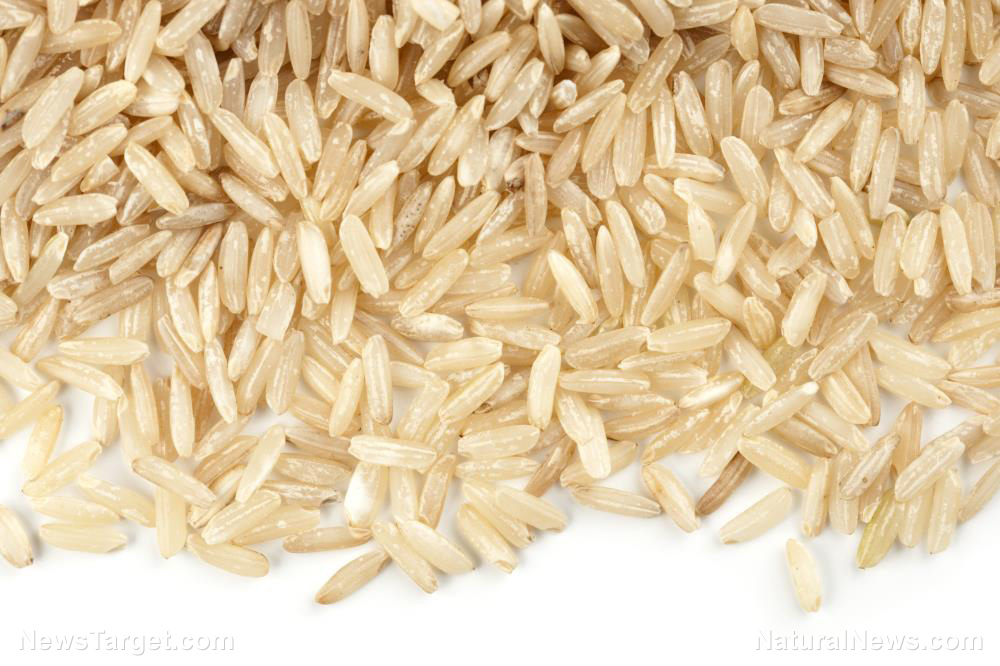
Advertisement
Eating a lot of protein while on a high-fiber diet can cause bloating, but that’s not necessarily a bad thing. Passing more gas than usual can mean that you’re getting the most of the fiber from your diet.
Researchers from Johns Hopkins University and Harvard University arrived at those findings after examining data from 164 individuals who ate three different high-fiber, low-sodium DASH diets on separate occasions:
- A carb-rich version consisting of 58 percent carbs, 15 percent protein and 27 percent fat
- A plant-based protein-rich version consisting of 48 percent carbs, 25 percent protein and 27 percent fat
- A fat-rich version consisting of 48 percent carbs, 15 percent protein and 37 percent fat
The researchers were looking to determine whether these three diets would alleviate or worsen bloating, which is a common side effect of a high-fiber diet.
Protein-rich high-fiber diets more likely to cause bloating, but they’re healthier
All of the participants had high blood pressure at the start of the study. They followed each of the three diets for six consecutive weeks, separated by a two-week “washout” interval during which they returned to their regular eating habits.
The researchers found that the prevalence of bloating went up from 18 percent at the start of the study to 24, 33 and 30 percent after the carb-, protein- and fat-rich diets, respectively. These figures indicated that high-fiber diets do cause bloating.
The protein-rich diet is significantly more likely to increase the odds of bloating, with the diet being linked to a 40 percent greater odds compared to the high-carb diet. This finding led the researchers to conclude that substituting high-quality carbs for protein may reduce bloating when eating a high-fiber diet.
At the same time, however, the researchers noted making high-fiber diets more tolerable in this way could reduce their health-promoting effects. This was because the protein- and fat-rich diets were also associated with lower blood pressure and lower cholesterol compared to the high-carb version.
In addition, high-fiber diets are thought to cause bloating because they increase the populations of beneficial gut bacteria that digest fiber and produce gas as a byproduct.
That being said, study co-author Noel Mueller suspected that the high-protein diet caused more bloating because it produced a bigger shift in the composition of the microbiome, or the entire community of microorganisms in the body. He pointed out that most of the protein sources included in the diet were healthy beans, legumes and nuts.
“Bloating may be just a consequence of a healthy shift in the microbiome, so that if somebody is able to put up with the bloating caused by a high-protein, high-fiber diet, they may ultimately benefit more in other health measures,” Mueller added.
Other side effects of a high-fiber diet and how to reduce them
Eating a high-fiber diet improves your overall health and increases your longevity, but it also comes with the following unwanted side effects:
- Bloating
- Gas
- Feeling too full
- Stomach cramps
- Constipation or diarrhea
- Dehydration
- Weight gain or loss
- Poor absorption of some key minerals, such as iron and calcium
These symptoms usually appear when you eat more than 70 grams (g) of fiber a day. However, some people may experience these after just 40 g.
You can reduce those side effects by employing the following strategies:
- Eating less fiber
- Increasing fluid intake
- Exercising more
- Avoiding foods that increase bloating, like chewing gum
- Eating less protein and more carbs if you’re on a protein-rich, high-fiber diet
Benefits of a high-fiber diet
While symptoms like bloating can make you uncomfortable, it’s worth noting that eating a high-fiber diet has a number of health benefits. Check out the following:
- Weight loss. Fiber keeps you feel full for longer and helps prevent your body from absorbing some of the calories in the foods you eat.
- Lower diabetes risk. Studies show that people who ate the most fiber had an 18 percent lower risk of Type 2 diabetes compared to those who ate the least.
- Healthy heart. Fiber picks up excess cholesterol in your body and ferries it out before it clogs your arteries.
- Healthy gut. Good gut bacteria feed off fiber to produce short-chain fatty acids that are important for your health.
- Lower risk of some cancers. Studies found that every 10 grams of fiber you eat are associated with a 10 percent lower risk of colorectal cancer and a five percent drop in breast cancer risk.
- Longevity. Research shows that people who regularly ate fiber-rich cereals and whole grains had a 19 and 17 percent lower risk, respectively, of all-cause mortality compared to those who ate less fiber-rich foods.
- Regular bowel movement. Fiber adds bulk to your stools and helps keep things moving along your digestive tract.
High-fiber diets can cause unwelcome side effects like bloating and constipation, but they’re also highly beneficial to your health. They boost your gut health, ward off diseases and keep you regular, among others. Eat more high-quality carbs in place of protein, drink more water or avoid foods like bubble gum to reduce the symptoms of eating too much fiber.
Sources:
Advertisements







